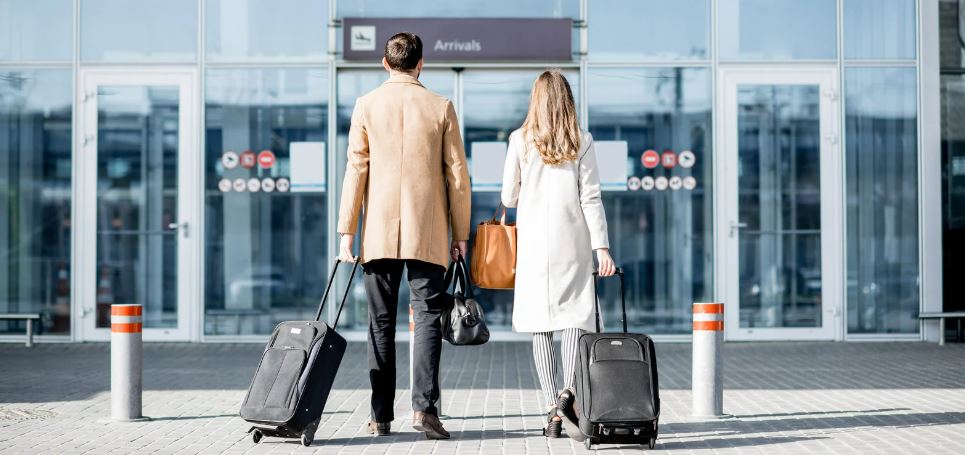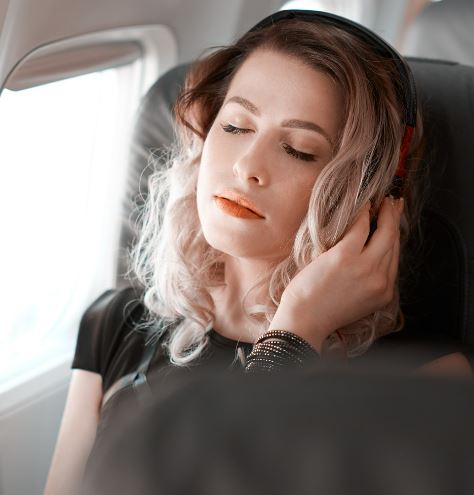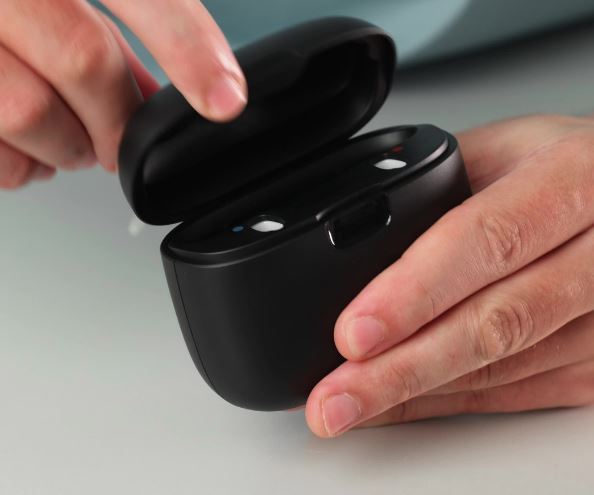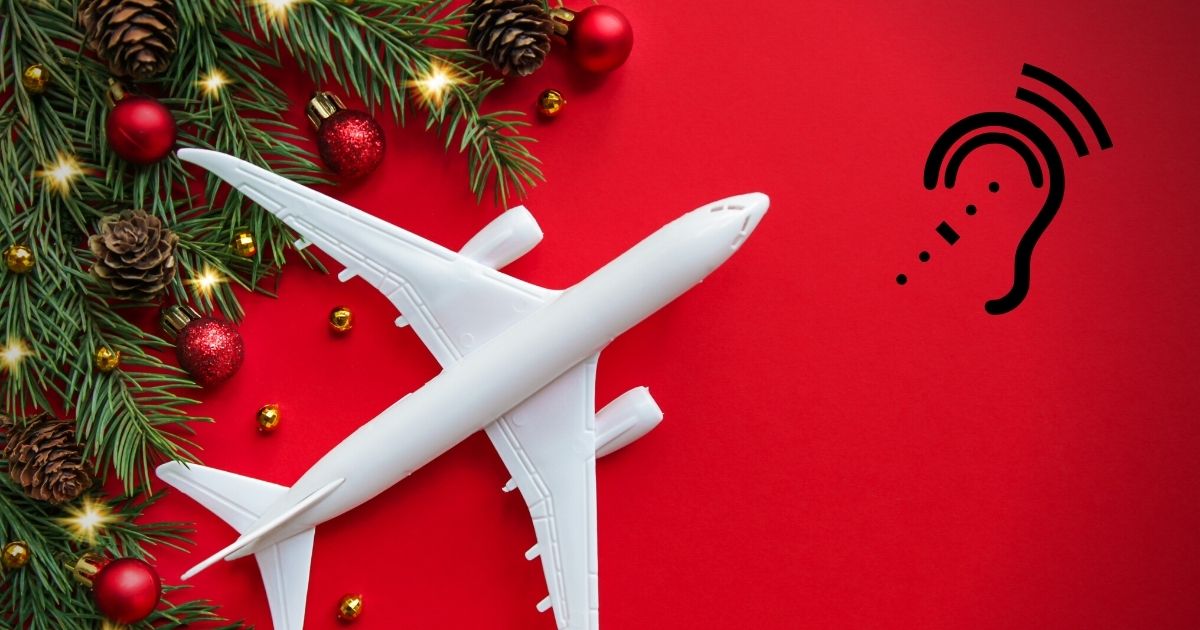It’s that time of year again, and everyone I know is heading somewhere for the holidays. No matter the destination, the holiday season is a busy time for travel, and that often means spending time at the airport.
Traveling can try anyone’s patience, but with hearing loss, there are additional challenges.
How will I know if my flight is delayed? Did they announce a gate change? When is it my turn to board? Or worst of all, What extra security screening do I need to do?
Air travel is getting more inclusive—more often than not at least some of the entertainment is now captioned— and many airports are adding hearing loops and providing captioned boarding announcements. But boo-boos still occur. My fellow Hearing Hack, Gael Hannan, was met with a wheelchair at the end of a recent flight. How that would help with her hearing loss is unclear!
Much education is still needed.

Hearing Hacks to Ease Air Travel for People with Hearing Loss
Before you head to the airport this holiday season, check out these tips to ease the journey.
Go mobile!
Most airline apps allow you to book travel, manage seat assignments, check-in, and display boarding passes. Many let you self-identify as a traveler with hearing loss during the check-in process.
The best part about going mobile is that the app will push alerts to your phone for any flight delays, gate changes, or other important information that is hard to hear over the airport PA system. Some apps even ping you when it is your turn to board!
If your travel plans change, you can also use the app to reschedule your flights.
Self-identify along the way.
Once you arrive at the gate, tell the gate agents about your hearing loss, even if you already noted it in the reservation. They can alert you when it is your time to board, but more often than not, they will invite you to pre-board removing the stress altogether.
Once on board, alert flight attendants that you may need additional assistance in an emergency as you may not understand the announcements. You can also let your seatmate know, so they can also alert you to any flight updates.
If you are still getting used to telling others about your hearing loss, this is a great opportunity to hone your “I have a hearing loss speech” on someone who you will likely never see again.
Wear a sunflower lanyard.
The Hidden Disabilities Sunflower is a simple tool to voluntarily share that you have a disability or condition that may not be immediately apparent. Sunflower lanyards help TSA and other airport staff recognize you as a person who may need additional assistance when traveling. This can ease the security process, especially if like I do, you always seem to be the one “randomly selected” for additional screening.
Learn more about the 230 airports in over 30 countries and 15 airlines worldwide that recognize the sunflower lanyard here.
Use ear protection.
 Air travel is loud! Removing your hearing aids alone is not enough to protect you from the unsafe sound levels onboard. Protect your hearing by wearing earplugs or earmuffs during the flight.
Air travel is loud! Removing your hearing aids alone is not enough to protect you from the unsafe sound levels onboard. Protect your hearing by wearing earplugs or earmuffs during the flight.
I prefer the noise-cancelling variety which cancels out the roar of the engine that can sometimes bring on a bout of tinnitus. Connect your noise-canceling headphones to your phone to enjoy music or watch a downloaded video if your residual hearing allows.
Find captioned entertainment.
Many airlines now offer captioned entertainment programming. Some even have a separate category for closed captioned movies which makes it easier to find the available options. Foreign language films are also a good choice as most provide subtitles. Alternatively, before the flight, download the next few episodes of the show you are binge-watching on your favorite streaming service to enjoy onboard with captions.
Most services allow you to download to a phone or tablet, but not to a laptop.
Bring extra batteries and chargers
 Your devices won’t work without power. As with any time you will be away from home for an extended period, bring extra batteries and chargers with you. If you have backup devices or use a remote microphone or other assistive listening devices, bring those (and the chargers) too!
Your devices won’t work without power. As with any time you will be away from home for an extended period, bring extra batteries and chargers with you. If you have backup devices or use a remote microphone or other assistive listening devices, bring those (and the chargers) too!
Wishing all you of a safe, enjoyable, and hearing-friendly holiday season!
**For more travel tips, refer to the Hearing Hacks section of Hear & Beyond: Live Skillfully with Hearing Loss

Shari Eberts is a passionate hearing health advocate and internationally recognized author and speaker on hearing loss issues. She is the founder of Living with Hearing Loss, a popular blog and online community for people with hearing loss, and an executive producer of We Hear You, an award-winning documentary about the hearing loss experience. Her book, Hear & Beyond: Live Skillfully with Hearing Loss, (co-authored with Gael Hannan) is the ultimate survival guide to living well with hearing loss. Shari has an adult-onset genetic hearing loss and hopes that by sharing her story, she will help others to live more peacefully with their own hearing issues. Connect with Shari: Blog, Facebook, LinkedIn, Twitter.







